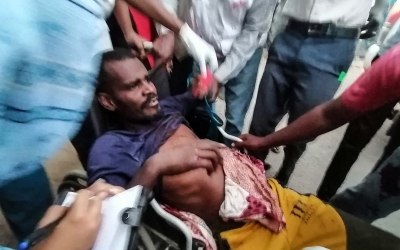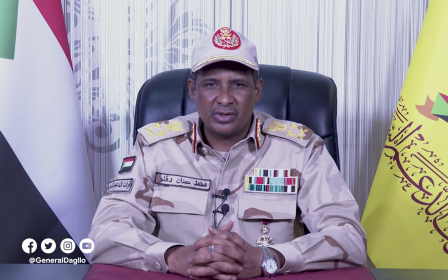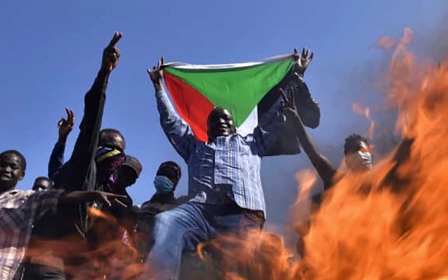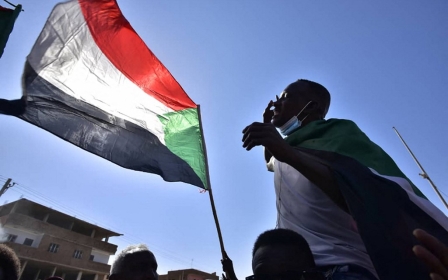Sudan coup: Activists call for escalation after deadliest day since military takeover
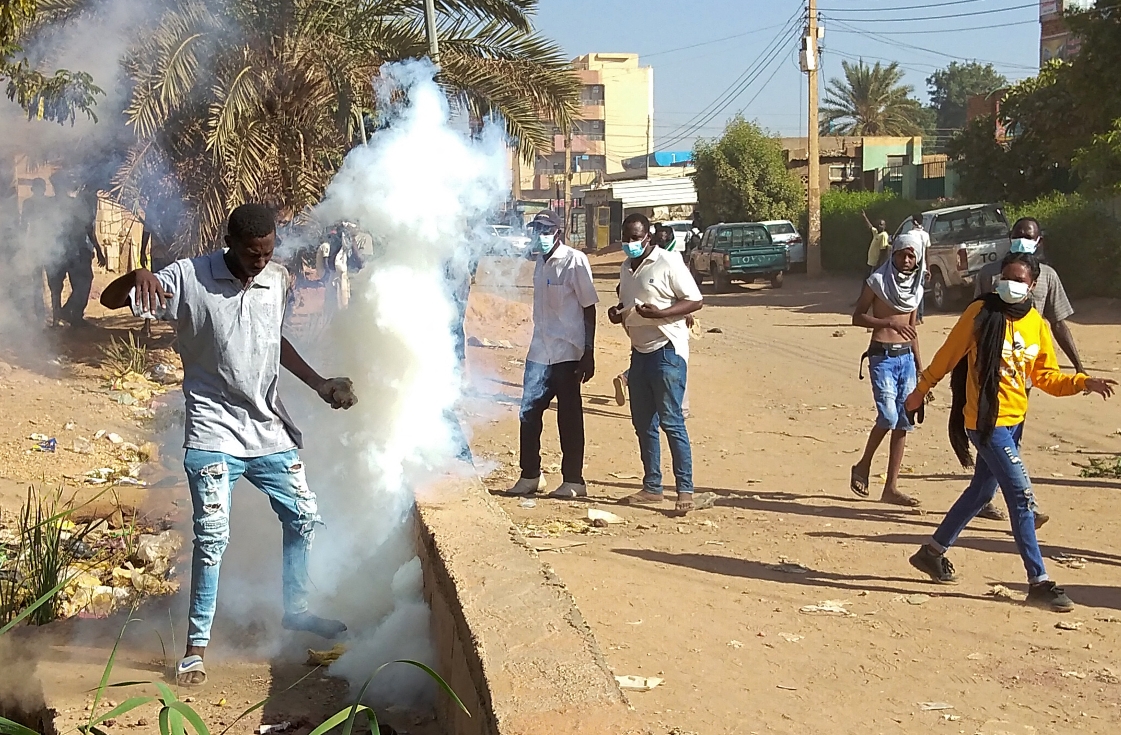
Sudanese activists on Thursday called for an escalation of protests against the 25 October military coup, a day after the deadliest security crackdown on demonstrators, which left 15 people dead and dozens wounded.
A group of community resistance committees coordinating the protest movement in the capital Khartoum announced “open escalation” against the coup until it is overthrown.
New MEE newsletter: Jerusalem Dispatch
Sign up to get the latest insights and analysis on Israel-Palestine, alongside Turkey Unpacked and other MEE newsletters
“Now we are making consultations among the resistance committees about upping the escalation against the coup,” it said in a statement.
A Sudanese court has ordered the detention of the heads of three telecommunications companies until internet services, which have been disrupted since the coup began, are restored.
On Wednesday, dozens of demonstrators manned makeshift barricades built the previous day in the capital's northern districts.
Thousands of people rallied in the capital to protest the otherthrow of Sudan's civilian leadership by General Abdel Fattah al-Burhan, Sudan's de facto leader since the April 2019 ousting of former president Omar al-Bashir. Burhan detained civilian leaders and declared a state of emergency on 25 October.
The move upended Sudan's fragile transition to full civilian rule, drawing wide international condemnation and a flurry of punitive measures and aid cuts.
The Central Committee of Sudanese Doctors (CCSD) said most of Wednesday's casualties had suffered gunshot wounds to "the head, neck or torso," but added that the demonstrators, undeterred and behind makeshift barricades, kept up their protests.
In a statement, the CCSD said security forces fired "live bullets extensively in separate areas of the capital," and that there are "tens of gunshot injuries, some of them in serious condition".
'Mere condemnations and issuing statements... can never dissuade the murderous military junta from massacring their own citizens'
- Omer Shurkian, SPLM-N
The CCSD, a pro-democracy doctors' union, also said security forces had arrested injured people inside Khartoum hospitals. Police denied using live ammunition and state television announced an investigation into the deaths.
Protesters had marched in neighbourhoods across Khartoum and its twin cities Bahri and Omdurman despite mobile phone communications being cut earlier in the day.
"We condemn violence towards peaceful protestors and call for the respect and protection of human rights in Sudan," said the US State Department's Bureau of African Affairs on Twitter.
Omer Shurkian, representative of the Sudan People's Liberation Movement - North (SPLM-N), told MEE in a statement that "mere condemnations and issuing statements are not good enough, because these good words cannot and can never dissuade the murderous military junta from massacring their own citizens."
Barricades removed
Burhan insists the military's move "was not a coup", but a step to "rectify the course of the transition" to civilian rule.
The protests in Khartoum and other cities were met by the deadliest crackdown since the coup, with the death toll now standing at 39 in recent weeks, the CCSD said.
Wednesday's demonstrations were organised despite a near-total shutdown of internet services and disruption of telephone lines across Sudan. By Thursday morning, phone lines had been restored but internet services remained largely cut, AFP reported.
Bridges connecting the capital with its neighbouring cities reopened and traffic again flowed through many streets in Khartoum. Security forces were seen removing makeshift barricades of bricks and rocks from some streets in the east and north of the capital.
Middle East Eye delivers independent and unrivalled coverage and analysis of the Middle East, North Africa and beyond. To learn more about republishing this content and the associated fees, please fill out this form. More about MEE can be found here.


